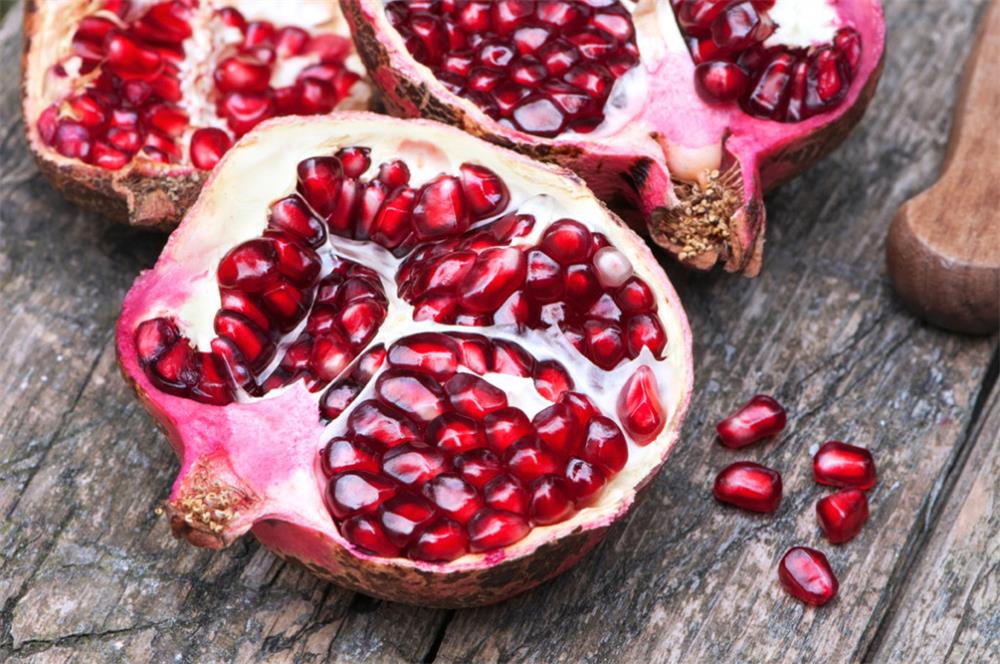Pomegranates are fruits that have a rich history and cultural significance in many regions of the world. They are often associated with fertility, abundance, prosperity, and good luck. In this article, we will explore some of the meanings and symbolism of pomegranates in different cultures and religions.
Contents
Ancient Egypt
Pomegranates were considered sacred by the ancient Egyptians, who believed that they were a symbol of life and resurrection. They were also used as offerings to the gods, especially Osiris, the god of the underworld and rebirth. Pomegranates were also depicted in paintings and tombs as a sign of eternal life.
Ancient Greece
Pomegranates were also revered by the ancient Greeks, who saw them as a symbol of love, marriage, and fertility. According to Greek mythology, pomegranates were the fruit of Persephone, the goddess of the underworld and spring. When she was abducted by Hades, the god of the underworld, she ate six seeds of a pomegranate, which bound her to him for six months of the year. This was believed to be the cause of the seasons, as Persephone’s mother Demeter, the goddess of agriculture and harvest, would mourn her absence in winter and rejoice in her return in spring.
Judaism
Pomegranates have a special significance in Judaism, as they are one of the seven species of fruits and grains that are mentioned in the Torah as being native to the land of Israel. They are also a symbol of righteousness, wisdom, and fruitfulness, as it is said that a pomegranate has 613 seeds, which corresponds to the number of commandments in the Torah. Pomegranates are often used as decorations on religious items, such as Torah scrolls, menorahs, and temple pillars. They are also eaten on Rosh Hashanah, the Jewish New Year, as a wish for a fruitful year ahead.
Christianity
Pomegranates have a dual meaning in Christianity, as they can represent both death and life. On one hand, they are seen as a symbol of Christ’s passion and suffering, as their red color and shape resemble his blood and wounds. On the other hand, they are also seen as a symbol of his resurrection and eternal life, as their many seeds signify his followers and his promise of salvation. Pomegranates are often depicted in Christian art and iconography, especially in scenes of the Nativity and the Crucifixion.
Islam
Pomegranates are highly valued in Islam, as they are mentioned several times in the Quran as one of the fruits of paradise. They are also considered to be a gift from Allah to his prophet Muhammad, who is said to have loved them and encouraged his followers to eat them. Pomegranates are a symbol of beauty, bounty, and purity in Islam, as they are believed to cleanse the body and soul from evil. They are also used as decorations on mosques and other Islamic architecture.
Other Cultures
Pomegranates have many other meanings and symbolism in various cultures around the world. For example:
- In China, pomegranates are a symbol of fertility and prosperity, as their many seeds represent offspring and wealth. They are also a traditional gift for weddings and new year celebrations.
- In India, pomegranates are a symbol of fertility and abundance, as well as health and wellness. They are used in Ayurvedic medicine for their healing properties and are also offered to Hindu gods and goddesses.
- In Armenia, pomegranates are one of the main fruits in Armenian culture (alongside apricots and grapes). Their juice is used with Armenian food or wine. They are also a symbol of fertility, abundance and marriage. They are also a semireligious icon.
- In Turkey, pomegranates are a symbol of good luck and happiness . They are often smashed on the ground or on doorsteps on New Year’s Eve to release their seeds and bring fortune for the new year.
Health Benefits of Pomegranates
Besides their cultural and religious significance, pomegranates also have many health benefits that make them a nutritious addition to your diet. Here are some of the ways that pomegranates can support your well-being:
- They may protect your heart. Pomegranates are rich in protective compounds which have antioxidant properties, these are beneficial for health as they protect not only our cells, from damage but also compounds like cholesterol. This means including pomegranate regularly may be effective at reducing the risk of atherosclerosis, a condition where plaque builds up in the arteries and impairs blood flow. Pomegranates may also help lower blood pressure and improve blood vessel function, which are important factors for heart health.
- They may support your immune system. Pomegranates are a good source of vitamin C, which is essential for the immune system and helps fight infections and inflammation. Vitamin C also helps with wound healing and collagen synthesis, which are important for skin health and elasticity. Pomegranates also contain other phytochemicals that have anti-inflammatory and antimicrobial effects, such as ellagic acid and punicalagin.
- They may enhance your exercise performance. Pomegranates may help boost your energy and endurance when you exercise, as they contain natural sugars and nitrates that can improve blood flow and oxygen delivery to your muscles. They may also help reduce muscle soreness and damage after exercise, as they have anti-inflammatory and antioxidant properties that can speed up recovery.
- They may prevent or slow down cancer growth. Pomegranates have been shown to have anti-cancer properties in some animal and test-tube studies, as they can inhibit the proliferation, invasion, and metastasis of cancer cells. They may also induce apoptosis, or programmed cell death, in cancer cells. The mechanisms behind these effects are not fully understood, but they may involve the modulation of gene expression, hormone levels, inflammation, and oxidative stress. Some of the cancers that pomegranates may affect include prostate, breast, lung, and colon cancers.
- They may improve your brain health. Pomegranates may help protect your brain from oxidative stress and inflammation, which are linked to neurodegenerative diseases such as Alzheimer’s and Parkinson’s. They may also enhance cognitive function and memory by improving blood flow to the brain and preventing the accumulation of amyloid-beta plaques, which are associated with Alzheimer’s disease.
SUMMARY
Pomegranates have many health benefits that can support your heart, immune system, exercise performance, cancer prevention, and brain health. They are rich in antioxidants, vitamins, minerals, and phytochemicals that can modulate various biological processes in your body.










